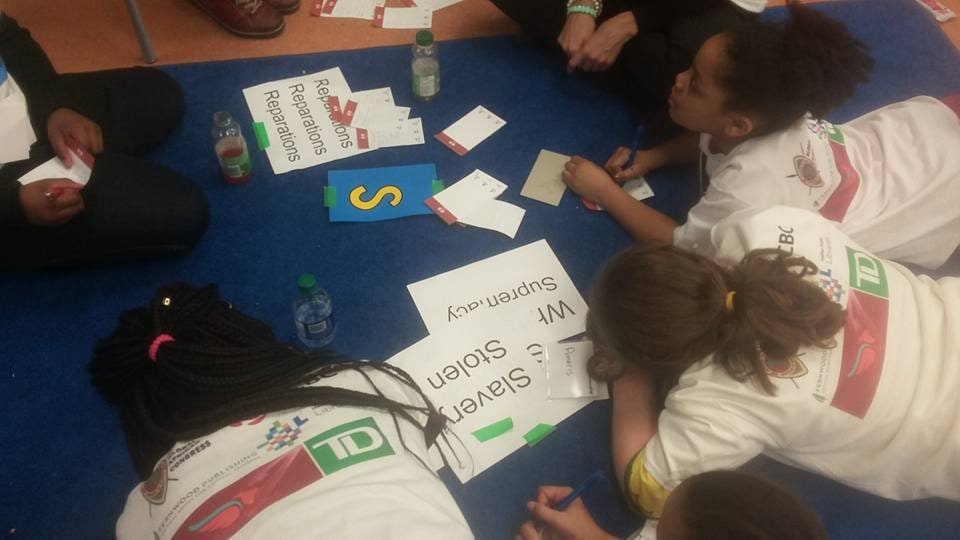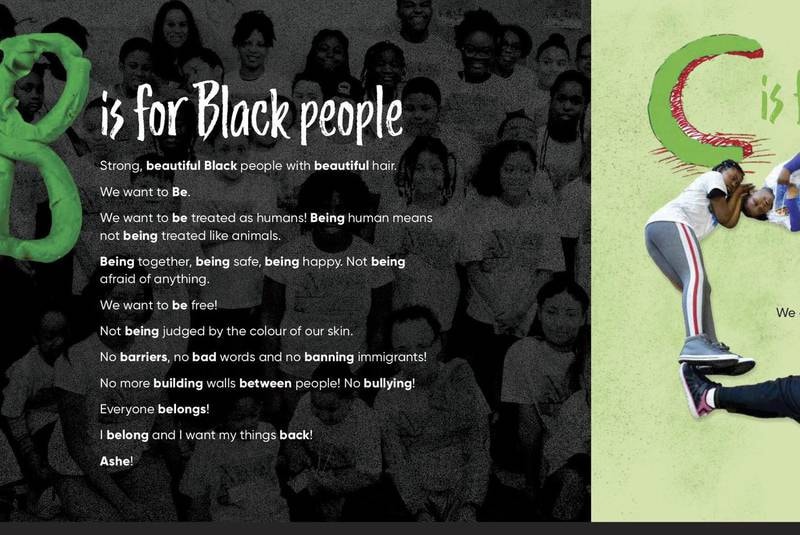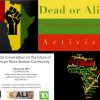
KJIPUKTUK (Halifax) – A powerful little book, a one-hour read tops, speaks to to the enduring legacy of slavery in Canada and the need for all of us to engage in a serious conversation about reparations.
R is for Reparations – Young Activists Speaking their Truth, was written in a day by some 30 children from in and around Halifax, aged 7 to 12. They got a little help from grown ups, but the sense you get is that it is very much their book.
Here in Nova Scotia the local chapter of the Global Afrikan Congress (GAC-NS) has been leading the charge for reparations, and activist Lynn Jones also tirelessly advocates the idea. The GAC-NS sponsored the book-in-a-day event.
CARICOM, an umbrella organization of some 15 Caribbean nations, has been outspoken in its demands for repairs. The organization’s website is a great place to find out more about the demands of the reparations movement.
But before you do that, I suggest you give R is for Reparations a read.
It’s written by kids, but that doesn’t make it a children’s book. Or not just a children’s book.
Kids are so direct. The power of this little book comes from the kids’ ability to make connections and draw conclusions straight from their lived experience of racism. They call it as they see it.
That’s a deeply sad statement, of course. You wish kids this young, this smart, and this alive would not know about racism.
But they do, and it reflects what African Nova Scotians face all the time, sometimes in subtle ways, sometimes obviously so. It is time white Nova Scotians woke up to this, it really is.
In the big picture slavery and colonialism destroyed Africa. Slavery caused horrible, unimaginable suffering to the Africans that were captured and brought to the Americas. Slavery laid the foundation for anti-Black racism and notions of white supremacy that have kept Black people in Canada disadvantaged, poor, prosecuted and heavily policed until this day.

The children talk (a lot) about positive forces in the community speaking to its resilience, things like teamwork, love, respect, energy. But they also mention Africville, poverty, racism, killing, drugs, and negativity.
The kids are right, it’s time we white people recognized how we continue to benefit from this injustice, and started thinking about ways to repair that terrible damage. That implies acknowledgement of the harms done, an apology, and restitution in some shape or form.
I will let the kids do the talking.
“Reparations means to right the wrongs. Black people’s land was taken. Our energy was stolen. Our mothers and fathers were stolen. Our wealth was stolen.
That was a rip-off.
Recognize anti-Black racism. It is ruthless.
We will relentlessly resist. We will not rest. We require restitution.”
R is for Reparations – Young Activists Speaking their Truth. By Global Afrikan Congress, Nova Scotia Chapter. Roseway, an imprint of Fernwood Publishing
Towards an understanding of Reparations as a creative, holistic and powerful tool of Black Liberation.. Lecture by David Commisiong, author and Barbadian ambassador to Caricom. Friday February 22, 7 PM, Sobey Building, Saint Mary’s University
Halifax launch of R is for Reparations. Saturday February 23, 10 AM, Halifax North Memorial Library, Gottingen Street, Halifax.
Book review: North to Bondage. Loyalist slavery in the Maritimes
News brief: Inquiry into Dalhousie’s connection to race and slavery presents preliminary findings
Census 2016: African Nova Scotian poverty rates through the roof, unemployment numbers terrible
With a special thanks to our generous donors who make publication of the Nova Scotia Advocate possible.
Subscribe to the Nova Scotia Advocate weekly digest and never miss an article again. It’s free!



